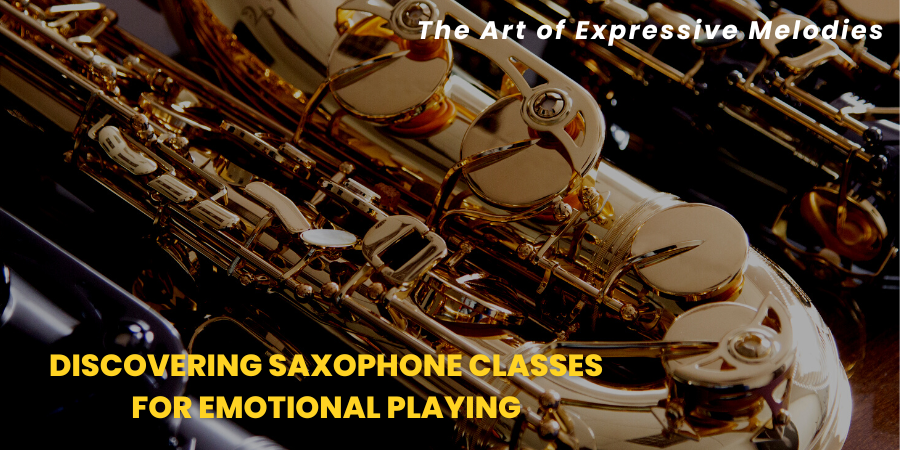The saxophone is renowned for its ability to convey deep emotions and touch the hearts of listeners. If you yearn to unlock the full expressive potential of this instrument and learn to play with emotional depth, saxophone classes dedicated to emotional playing can be a transformative experience. In this article, we will explore the world of saxophone classes that focus on emotional expression, highlighting their benefits, guiding you in finding the best classes, and offering valuable insights for beginners seeking to master the art of playing with heartfelt emotion.
Benefits of Saxophone Classes for Emotional Playing:
- Developing Tone and Phrasing: Saxophone classes focused on emotional playing delve into techniques for developing a rich, expressive tone and nuanced phrasing. Students learn how to control dynamics, vibrato, and articulation to evoke different emotions, bringing depth and authenticity to their playing.
- Interpretation and Musicality: Classes for emotional playing emphasize the interpretation of music, helping students understand the emotional intent behind each piece. By exploring various musical styles and genres, students develop their musicality and gain the ability to infuse their performances with genuine emotion, creating a profound connection with their audience.
Finding the Best Saxophone Classes for Emotional Playing:
- Research Online Platforms: Look for reputable online platforms that offer saxophone classes specifically focused on emotional playing. Consider the curriculum, instructor qualifications, and student reviews to ensure a comprehensive and engaging learning experience. The best online saxophone lessons for emotional playing will provide guidance on tone development, phrasing, and interpretation.
- Qualified Instructors: When seeking the best saxophone teacher for emotional playing, consider their background and expertise in expressive performance. Look for teachers who have a deep understanding of musical emotions, possess strong improvisational skills, and can guide you in developing a personal and emotive playing style.
- Beginner-Friendly Programs: For beginners, it is crucial to find saxophone classes that cater to their level of experience. Look for beginner saxophone lessons that introduce fundamental techniques while also incorporating exercises and repertoire that encourage emotional expression. A patient and supportive instructor can help beginners navigate the complexities of emotional playing with ease.
- Private Lessons for Personalized Guidance: Consider private saxophone lessons if you prefer individualized attention and a tailored approach. Private instruction allows the instructor to focus specifically on your strengths and areas of improvement, providing personalized guidance to enhance your emotional playing skills.
Saxophone classes dedicated to emotional playing offer a gateway to unlocking the true expressive potential of the instrument. By developing tone, phrasing, and interpretive skills, students can learn to convey a wide range of emotions through their saxophone playing, touching the hearts of their audience. Whether you choose online saxophone classes or private instruction, it is important to find qualified instructors and beginner-friendly programs that prioritize emotional expression. By investing in these classes, you can embark on a musical journey that not only enhances your saxophone skills but also allows you to communicate and connect on a deep emotional level through the power of music

